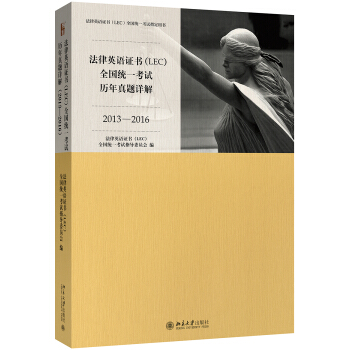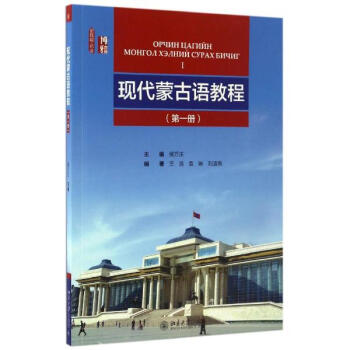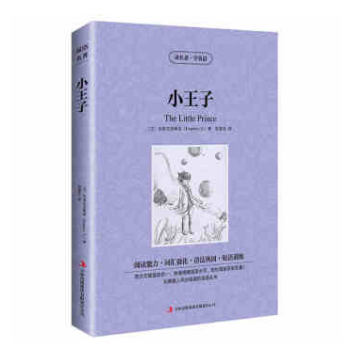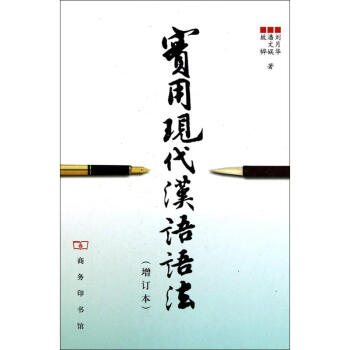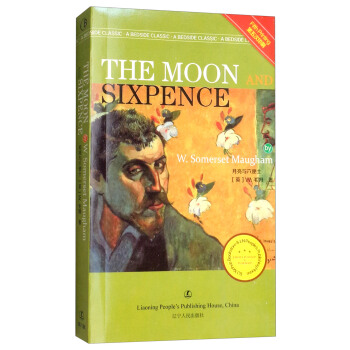

具体描述
内容简介
《月亮与六便士(英文版)》系作者的代表作。为什么叫“月亮与六便士”?书名的意义出自某评论家在评论《人性的枷锁》时所写的某句话。原话如下:《人性的枷锁》里的主人公菲利普·凯利(Philip Carey)被形容为一个太过执着找寻月亮的家伙,以至于他从来就没发现过脚底下就有一块六便士。毛姆后来这样解释道:“假如你低头在地上不住地要找寻一块六便士硬币,头也不抬起来一下,那么,你就会丢掉月亮。”?目录
CHAPTER 1CHAPTER 2
CHAPTER 3
CHAPTER 4
CHAPTER 5
CHAPTER 6
CHAPTER 7
CHAPTER 8
CHAPTER 9
CHAPTER 10
CHAPTER 11
CHAPTER 12
CHAPTER 13
CHAPTER 14
CHAPTER 15
CHAPTER 16
CHAPTER 17
CHAPTER 18
CHAPTER 19
CHAPTER 20
CHAPTER 2l
CHAPTER 22
CHAPTER 23
CHAPTER 24
CHAPTER 25
CHAPTER 26
CHAPTER 27
CHAPTER 28
CHAPTER 29
CHAPTER 30
CHAPTER 31
CHAPTER 32
CHAPTER 33
CHAPTER 34
CHAPTER 35
CHAPTER 36
CHAPTER 37
CHAPTER 38
CHAPTER 39
CHAPTER 40
CHAPTER 41
CHAPTER 42
CHAPTER 43
CHAPTER 44
CHAPTER 45
CHAPTER 46
CHAPTER 47
CHAPTER 48
CHAPTER 49
CHAPTER 50
CHAPTER 51
CHAPTER 52
CHAPTER 53
CHAPTER 54
CHAPTER 55
CHAPTER 56
CHAPTER 57
CHAPTER 58
精彩书摘
《月亮与六便士(英文版)》:I confess that when first I made acquaintance with Charles Strickland I never for a moment discerned that there was in him anything out of the ordinary. Yet now few will be found to deny his greatness. I do not speak of that greatness which is achieved by the fortunate politician or the successful soldier; that is a quality which belongs to the place he occupies rather than to the man; and a change of circumstances reduces it to very discreet proportions.
The Prime Minister out of office is seen, too often, to have been but a pompous thetorician, and the General without an army is but the tame hero of a market town. The greatness of Charles Strickland was authentic. It may be that you do not like his art, but at all events you can hardly refuse it the tribute of your interest. He disturbs and arrests. The time has passed when he was an object of ridicule, and it is no longer a mark of eccentricity to defend or ofperversity to extol him. His faults are accepted as the necessary complement to his merits. It is still possible to discuss his place in art, and the adulation ofhis admirers is perhaps no less capricious than the disparagement of his detractors; but one thing can never be doubtful, and that is that he had genius. To my mind the most interesting thingin art is the personality of the artist; and if that is singular, I am willing to excuse a thousand faults. I suppose Velasquez was a better painter than El Greco, but custom stales one's admiration for him: the Cretan, sensual and tragic, proffers the mystery of his soul like a standing sacrifice. The artist, painter, poet, or musician, by his decoration, sublime or beautiful, satisfies the aesthetic sense; but that is akin to the sexual instinct, and shares its barbarity: he lays before you also the greater gift of himself. To pursue his secret has something of the fascination of a detective story. It is a riddle which shares with the universe the merit of having no answer. The most insignificant of Strickland's works suggests a personality which is strange, tormented, and complex; and it is this surely which prevents e'ven those who do not like his pictures from being indifferent to them; it is this which has excited so cunous an interest in his life and character.
It was not till four years after Strickland's death that Maurice Huret wrote that article in the Mercure de France which rescued the unknown painter from oblivion and blazed the trail which succeeding writers, with more or less docility, have followed. For a long time no critic has enjoyed in France a more incontestable authority, and it was impossible not to be impressed by the claims he made; they seemed extravagant; but later judgments have confirmed his estimate, and the reputation of Charles Strickland is now firmly established on the lines which he laid down. The rise of this reputation is one of the most romantic incidents in the history of art. But I do not propose to deal with Charles Strickland's work except in so far as it touches upon his character. I cannot agree with the painteris,who claim superciliously that the layman can understand nothing of painting, and that he can best show his appreciation of their works by silence and a cheque-book. It is a grotesque misapprehension which sees in art no more than a craft comprehensible perfectly only to the craftsman: art is a manifestation of emotion, and emotion speaks a language that all may understand. But I will allow that the critic who has not a practical knowledge
……
前言/序言
经典名著的语言无疑是最凝练、最优美、最有审美价值的。雪莱的那句“如冬已来临,春天还会远吗?”让多少陷于绝望的人重新燃起希望之火,鼓起勇气,迎接严冬过后的春天。徐志摩一句“悄悄的我走了,正如我悄悄的来;我挥一挥衣袖,不带走一片云彩”又让多少人陶醉。尼采的那句“上帝死了”,又给多少人以振聋发聩的启迪作用。读经典名著,尤其阅读原汁原味作品,可以怡情养性,增长知识,加添才干,丰富情感,开阔视野。所谓“经典”,其实就是作者所属的那个民族的文化积淀,是那个民族的灵魂缩影。英国戏剧泰斗莎士比亚的《哈姆雷特》和《麦克白》等、“意大利语言之父”的但丁的《神曲》之《地狱篇》《炼狱篇》及《天堂篇》、爱尔兰世界一流作家詹姆斯·乔伊斯的《尤利西斯》及《一个艺术家的肖像》等、美国风趣而笔法超一流的著名小说家马克·吐温的《哈克历险记》以及《汤姆索亚历险记》等,德国著名哲学家尼采的《查拉图斯特拉如是说》及《快乐的科学》等等,都为塑造自己民族的文化积淀,做出了永恒的贡献,也同时向世界展示了他们所属的民族的优美剪影。
用户评价
这本作品的结构布局,堪称精巧。它不是一个线性的故事,更像是一系列围绕一个核心主题不断旋转的片段、回忆和感悟的集合体。开篇的几页就定下了那种不安分的基调,如同远方传来的闷雷,预示着一场风暴的来临。阅读过程中,我能清晰地感受到作者在试图构建一种“非线性”的真实感,生活本身就是碎片化的,艺术的诞生过程更是如此,充满了反复、中断和突如其来的灵光。作者非常擅长使用象征手法,书中的一些意象反复出现,每一次出现都带有新的含义,比如月亮、大海、或者某种特定的颜色,它们构建了一个复杂的符号系统,让解读充满了乐趣。这让这本书具有极高的重读价值,每一次的“解码”过程都是一次全新的阅读体验。它需要读者投入心智,去构建那些作者并未明说的联系,这种主动参与感,正是阅读伟大文学作品最迷人的地方。
评分这本小说简直是文字的盛宴,阅读体验仿佛置身于一场精心编排的戏剧之中。作者对人物内心世界的刻画入木三分,那些挣扎、那些狂热,都像是用最细腻的笔触描绘出来的油画,浓墨重彩却又不失层次感。我尤其欣赏作者那种近乎冷酷的客观性,他并不急于评判主角的选择,而是将所有复杂性赤裸裸地呈现在我们面前,任由我们去思考和感悟。书中的场景描写也极为传神,无论是巴黎街头的喧嚣,还是热带岛屿的静谧,都仿佛触手可及。那种异域风情的描摹,不是简单的堆砌异国情调,而是深入到当地文化的肌理之中,让人在翻页的同时,也完成了一次精神上的远足。每一次重读,都能发现一些之前忽略的伏笔和微妙的暗示,这显示了作者高超的叙事技巧和结构布局能力。整本书的节奏把握得恰到好处,时而紧凑激烈,时而舒缓深沉,如同音乐的强弱音变化,牢牢抓住了读者的心弦。它不仅仅是一个关于追逐梦想的故事,更是一部关于人性本质、关于艺术与生活之间永恒张力的深刻探讨。读完之后,那种意犹未尽的感觉久久不能散去,耳边似乎还回荡着那些充满激情的呐喊和对庸常生活的决绝告别。
评分这本书的魅力在于它的“刺痛感”,它毫不留情地揭示了理想主义与现实生存之间的巨大鸿沟。我读到许多关于艺术家在社会边缘挣扎求生的片段,那种被主流社会排斥、被误解的孤独感,让人感同身受。作者的语言风格有一种独特的冷峻美学,像锋利的冰锥,直插人心的最柔软处。他没有提供廉价的安慰或俗套的结局,而是让你直面那些不完美、那些巨大的牺牲。我特别喜欢书中对于“天才”这一概念的探讨,它似乎暗示了真正的创造力往往伴随着对社会规范的彻底颠覆和对个人幸福的漠视。这本书对我最大的影响是促使我重新审视自己对“成功”的定义。那些看似光鲜亮丽的外表下,隐藏着多少不为人知的妥协与妥协之后的空虚?而那些被世人视为“疯子”的个体,是否反而更接近某种纯粹的真实?这种哲学层面的追问,远比情节本身更引人入胜。它不是一本可以轻松读完的书,它需要你投入全部的注意力,甚至需要你暂时放下自己固有的价值观去与之对话,像是一次心灵的严峻考验。
评分从文学技法的角度来看,这部作品的叙事视角处理得极其高明。我们仿佛是通过一个旁观者的眼睛,冷眼旁观着一场盛大而悲剧性的自我毁灭与自我实现。这位旁观者的冷静,反而衬托出主角内心世界的狂热与不可理喻。书中的对话不多,但每一个字都掷地有声,充满了张力,很多时候,无声的行动比千言万语更具冲击力。尤其是书中对于环境的描写,比如对南太平洋岛屿上那种原始、未经雕琢的生活状态的刻画,简直是教科书级别的范本。作者用极简的笔触勾勒出热带的湿热、光线的强烈对比,这种氛围的营造,为主角后半段的“隐居”提供了一个完美的、近乎神话的背景板。它不是简单的背景交代,而是角色精神状态的外化。读完整本书,我感觉自己的感官都被打开了,仿佛能闻到海风的味道,感受到画布上颜料的厚重。这种沉浸式的阅读体验,是许多当代小说难以企及的高度。
评分这本书真正让我震撼的是它对“自由”的终极探索。它探讨的自由,不是政治或经济上的解放,而是一种彻底的、精神层面的挣脱——挣脱社会期望、家庭责任、乃至世俗道德的桎梏。主角为了追求那份无上的创作冲动,付出的代价是常人无法想象的,甚至可以说是残忍的。这种近乎宗教狂热的执着,让人感到敬畏,但也让人不寒而栗。作者没有将这种追求美化成浪漫的逃离,而是将其描绘成一种必要的、甚至有些痛苦的“剔骨疗伤”过程。我反复思考,这种极致的自我中心主义,究竟是艺术的必然要求,还是人类本性中某种黑暗面的投射?书中的配角们,比如那位试图理解和挽留主角的人,他们的视角提供了重要的平衡点,他们的痛苦和困惑,让主角的行为显得更加极端和难以捉摸。这种多维度的审视,让故事的深度远远超越了一般的传记式小说。
相关图书
本站所有内容均为互联网搜索引擎提供的公开搜索信息,本站不存储任何数据与内容,任何内容与数据均与本站无关,如有需要请联系相关搜索引擎包括但不限于百度,google,bing,sogou 等
© 2026 book.idnshop.cc All Rights Reserved. 静思书屋 版权所有


